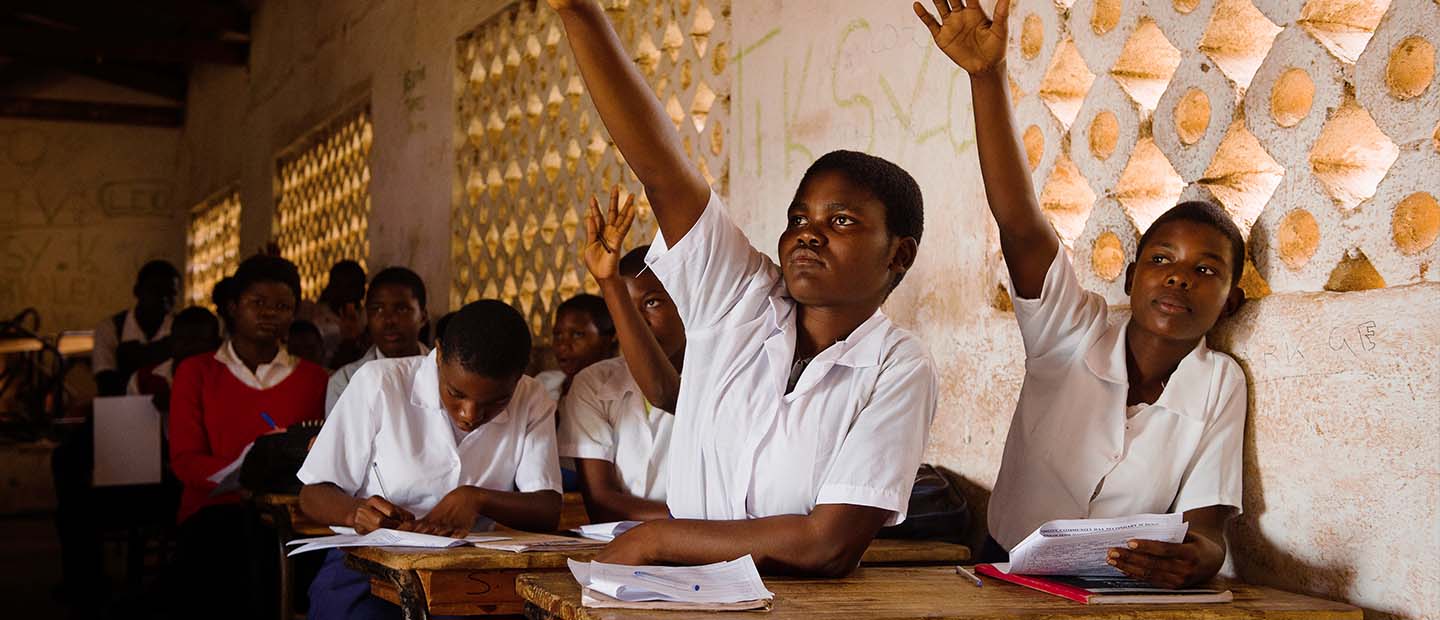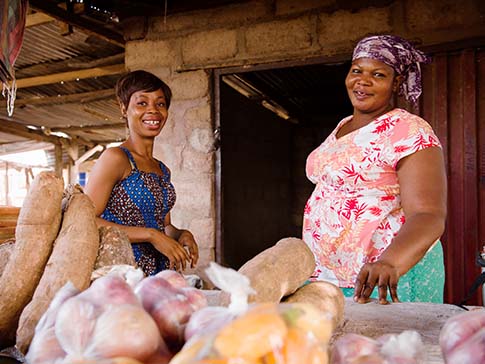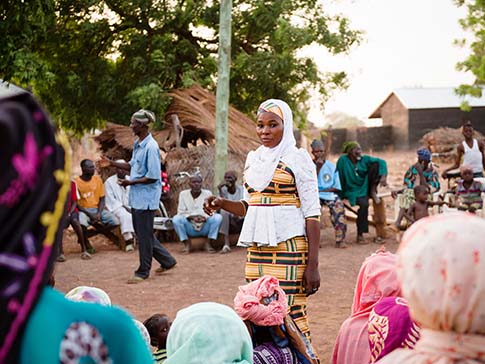
3 stages of girls’ education and development that can change everything

Investing in the education of girls and women is a proven way to improve the health and wealth of entire nations.
Yet across sub-Saharan Africa, 28 million girls are out of school. Even those who initially access school face many barriers to completing their education — financial (the costs of school or exam fees, uniforms and books), physical (the long and dangerous distances to many secondary schools) and psycho-social (barriers to learning due to hunger, grief, or lack of confidence).
At the recent Global Partnership for Education Financing Conference in Dakar, Senegal, donors countries committed $2.3 billion and developing countries committed $110 billion to fund education. For CAMFED, Quality Education (SDG 4) means enabling girls to complete their education, become financially independent and active in decision-making and leadership positions. The results have a positive impact in achieving nearly all our Sustainable Development Goals (SDGs), providing tangible benefits to girls’ families, communities and countries:
1. School Years
Challenge: A United Nations report in 2015 showed that not a single sub-Saharan African country has an equal number of boys and girls in secondary education. Dropping out of school leaves girls at greater risk of child marriage, early pregnancy and HIV/AIDS.
Our Solution: CAMFED commits to supporting each girl through the entire secondary school cycle, providing the support she needs to stay in school, such as school fees, supplies, a uniform and essential personal items. Importantly, we also train Teacher Mentors to look after girls’ psycho-social needs, building self-esteem and providing emotional support.
Key Fact: Educated women marry later, have smaller, healthier families, and invest in their children’s education
2. Path to Economic Independence
Challenge: In sub-Saharan Africa, 74% of women in non-agricultural jobs are in informal employment. In rural areas, many women rely on small-scale farming to support themselves, work which is mostly informal, often unpaid, and vulnerable to climate change.
Our Solution: Our CAMA alumnae network allows young women graduates to access peer support, training and financial resources that open up new pathways to independence. CAMA’s entrepreneurship and seed money schemes help young women in rural areas to set up viable businesses. Through these businesses, young women create jobs in their communities and can support more children through school.
Key Fact: A girls’ income will increase by 15–25% for every year she stays in school, and she’ll invest 90% of her earnings back into her family

Saviour runs a produce distribution business, employing young people in the community and reinvesting the profits into her siblings’ education (Photo: Eliza Powell/CAMFED)

CAMFED alumna Hawa is now a District Assemblyperson, acting as a role model and trailblazer in her community (Photo: Eliza Powell / CAMFED)
3. Decision-Making & Leadership
Challenge: Across the sub-Saharan Africa region, there is an average remaining gender gap of 32%, placing it in the lower-middle range globally. With limited involvement in decision-making it is challenging for women to demand their rights to education, to own land, to make economic decisions, and to make informed sexual and reproductive health choices.
Our Solution: Through our CAMA alumnae network, young women get the support they need to take up leadership positions, including as elected officials within the network. Targeted training allows young women to guide more vulnerable children through school, and support them in understanding their rights and avoiding exploitation. They become role models and mentors in schools and communities, delivering health, wellbeing and financial literacy programs, sharing sustainable agricultural practices and business skills, and sitting on local and elected committees, changing the prospects for marginalized people for good.
Key Fact: Educated women resist gender-based violence and discrimination, and change their communities from within
Using this multi-dimensional and sustainable approach to quality education, in the classroom and beyond, we can empower girls and young women to lift up themselves and those around them. Everyday our CAMA members are stepping up as rural teachers and entrepreneurs, using their lived experience to drive up learning outcomes and change gender norms. Respected and working in partnership with boys and men, chiefs and district officials, they are tackling discrimination and proving that with access to schooling and training, girls have the potential to change the future of entire nations.
Sources:
1. ‘Sub-Sahara Africa rates poorly in equal education for boys and girls: U.N.’ – Reuters [online]. Available at: https://www.reuters.com/article/us-gender-schooling-un/sub-saharan-africa-rates-poorly-in-equal-education-for-boys-and-girls-u-n-idUSKCN0S600M20151012 [Accessed on 23 Feb. 2018].
2. ‘Facts and Figures: Economic Empowerment’ – U.N. Women [online]. Available at: https://www.unwomen.org/en/what-we-do/economic-empowerment/facts-and-figures [Accessed on 23 Feb. 2018].
3. The World Economic Forum. (2016). Global Gender Gap Report [online]. Available at: https://reports.weforum.org/global-gender-gap-report-2016/ [Accessed on 23 Feb. 2018].
4. Bradshaw, S. (2013). ‘Women’s role in economic development: Overcoming the constraints’ [online]. Available at: https://unsdsn.org/wp-content/uploads/2014/02/130520-Women-Economic-Development-Paper-for-HLP.pdf [Accessed on 23. Feb. 2018].
